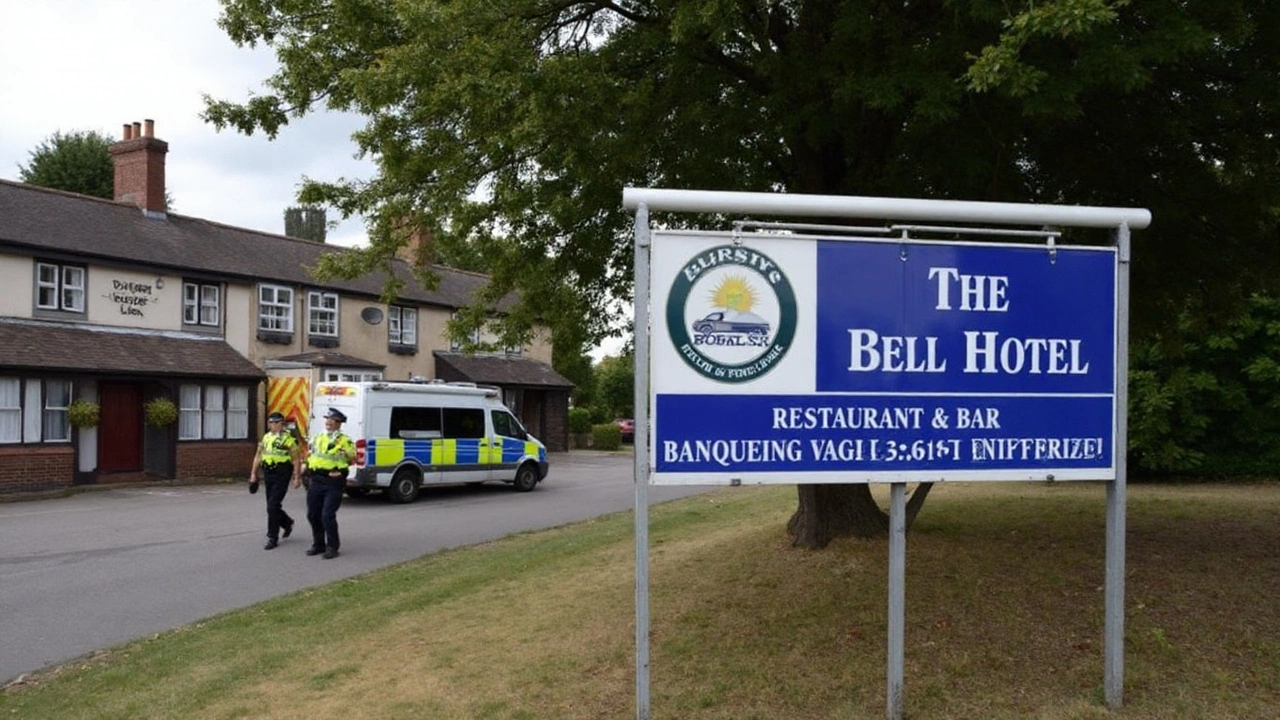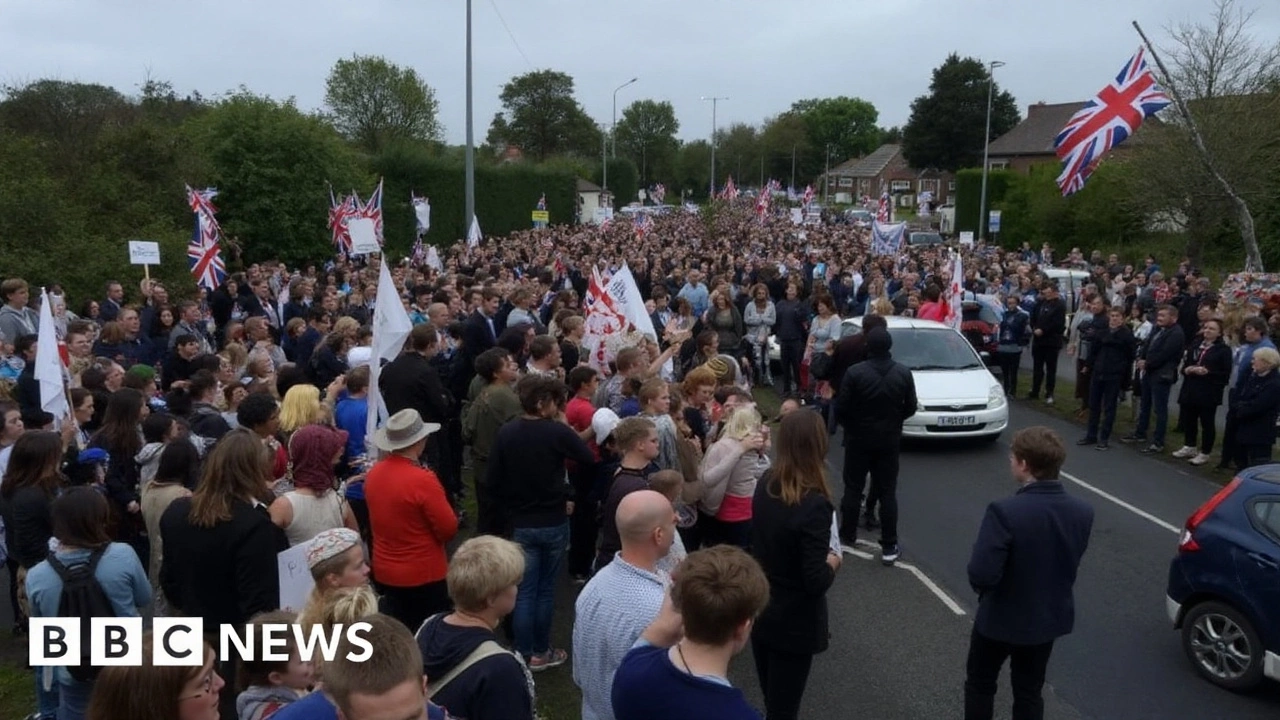Two arrests after Norwich demonstration outside asylum hotel
Police made two arrests after a protest outside a Norwich hotel used to accommodate asylum seekers, an event that drew a counter-demonstration and a visible police presence. Officers kept the groups apart and moved people on when tensions rose. As of late evening, Norfolk Constabulary had not released details such as the ages of those arrested, the suspected offences, or whether they remained in custody.
The rally formed part of a coordinated day of action targeting sites linked to the asylum system. Organisers promoted events under the “Abolish the Asylum System” banner, while anti-racism campaigners staged counter-protests nearby. Similar scenes played out in other cities and towns, including Manchester, Birmingham, Dudley, Bristol, Exeter, Tamworth, and Liverpool, according to local reports shared by campaign groups and police forces.
In Norwich, traffic was intermittently managed as officers created separation between opposing groups. There were chants and exchanges across the police line, but there were no immediate reports of serious injuries. The force said it would review video footage and body-worn camera recordings as part of any follow-up inquiries.
The hotel at the centre of the demonstration is one of several sites across the region used by the Home Office as contingency accommodation. Local councils are routinely informed but do not select the hotels. In recent months, authorities have reduced the number of hotels under contract in some areas, but sites remain in use while longer-term policy changes work through the system.

Why asylum hotels remain a flashpoint
The UK turned to hotels during a spike in arrivals and a growing backlog of asylum claims. It was meant to be temporary. Yet the pressure persisted, and costs ballooned into the millions of pounds per day. Ministers have repeatedly said the bill is unsustainable and promised to phase out hotel use by speeding up decisions and moving people into alternative accommodation.
Those alternatives have sparked their own rows. The Bibby Stockholm barge at Portland Port, the former RAF sites at Wethersfield in Essex and Scampton in Lincolnshire, and other large-scale facilities have faced legal challenges, planning disputes, and regular protests. The government argues large sites are cheaper and easier to manage. Local leaders and residents have pushed back, citing strain on services and concerns about consultation.
Public order policing around these protests has hardened since a violent disorder outside a hotel in Knowsley in 2023, when a police vehicle was set on fire and multiple arrests followed. Forces now stress a twin approach: facilitating lawful protest while clamping down on intimidation, harassment, and disorder. That often means larger cordons, early dispersal orders, and quick arrests when flashpoints appear.
The politics remain raw. Some demonstrators demand an end to what they describe as “hotel placements,” arguing the policy encourages more arrivals and drains public funds. Counter-protesters focus on the people inside the buildings, pointing out they are exercising a legal right to seek asylum and often cannot work while waiting on decisions. Local charities have filled gaps with English classes, clothing, and health signposting, trying to calm tensions at street level.
Policy is still shifting. The government has said it will process claims faster, return people with no right to remain more quickly, and expand alternatives to hotels. New laws aim to deter small-boat crossings and tighten rules on who can claim protection. Critics say deterrence does not fix the asylum backlog, and that safe routes and faster casework would cut costs and reduce the need for hotels.
For Norwich, the immediate question is straightforward: what, exactly, happened outside the hotel and what do the arrests involve? Police have signalled more information will follow once paperwork is complete and any charges are confirmed. If recent protests elsewhere are a guide, officers will assess whether hate-related offences, public order breaches, or restrictions under prior dispersal powers apply.
Meanwhile, the national picture won’t settle quickly. Campaign groups on both sides are planning more rallies, and communities near accommodation sites remain on edge. As long as the government continues to rely on asylum hotels—even as a stopgap—these confrontations are likely to keep surfacing, and local forces like Norfolk Constabulary will be bracing for the next call-out.
